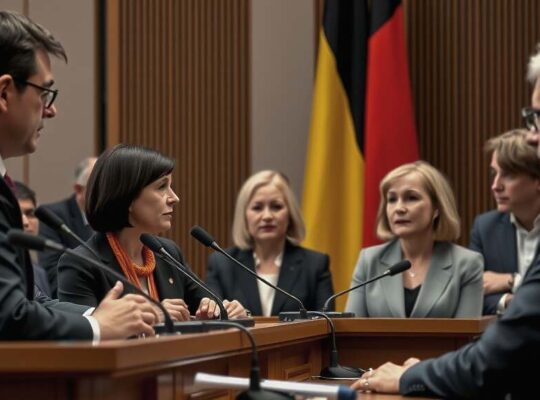The proposed overhaul of Germany’s Bürgergeld (citizen’s income) benefits is facing internal scrutiny within the ruling Social Democratic Party (SPD), as evidenced by recent debates and a general climate of distrust towards coalition partners. Saarland’s Minister-President Anke Rehlinger, in a recent interview with ARD, staunchly defended the reforms, emphasizing a core principle: assistance for those in need coupled with sanctions for abuse of the system. Rehlinger characterized the changes as a necessary recalibration, arguing they are equitable both for recipients and for the taxpayers who fund the social safety net.
However, Rehlinger acknowledged the pervasive skepticism within the SPD stemming from recent disagreements with coalition partners concerning military conscription reform and the selection of constitutional judges. These disputes have fostered a sense of unease, with some party members fearing a dismantling of social protections. Rehlinger explicitly rejected the notion of a “social dismantling” reassuring her colleagues that the SPD’s approach remains measured and avoids radical policy shifts.
Drawing a cautionary parallel to the political landscape in France, Rehlinger warned that delaying necessary reforms due to fear of public backlash can inadvertently bolster extremist political forces. “France serves as a stark warning for Germany” she stated, implicitly criticizing the tendency to postpone difficult decisions. The comment highlighted concerns that inaction could create a fertile ground for populism and further polarization within the nation. The debate surrounding Bürgergeld, she cautioned, must not fall victim to such anxieties and requires a pragmatic, albeit potentially unpopular, approach to ensure the long-term viability of the German social state.












